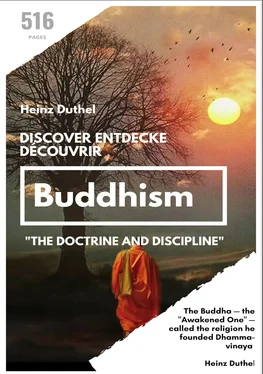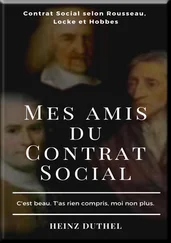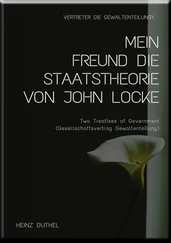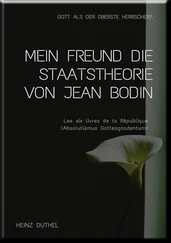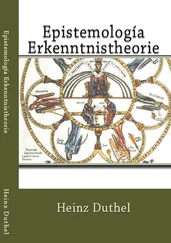"No, Master Gotama..."
"So it is with any priest or contemplative who lives withdrawn from sensuality in body only, but whose desire, infatuation, urge, thirst, and fever for sensuality is not relinquished and stilled within him: Whether or not he feels painful, racking, piercing feelings due to his striving, he is incapable of knowledge, vision, and unexcelled self-awakening...
"Then a third simile — spontaneous, never before heard — appeared to me. Suppose there were a dry, sapless piece of timber lying on land far from water, and a man were to come along with an upper fire-stick, thinking, 'I'll light a fire. I'll produce heat.' Now what do you think? Would he be able to light a fire and produce heat by rubbing the upper fire-stick in the dry, sapless timber lying on land?"
"Yes, Master Gotama..."
"So it is with any priest or contemplative who lives withdrawn from sensuality in body and mind, and whose desire, infatuation, urge, thirst, and fever for sensuality is relinquished and stilled within him: Whether or not he feels painful, racking, piercing feelings due to his striving, he is capable of knowledge, vision, and unexcelled self-awakening...
"I thought: 'Suppose that I, clenching my teeth and pressing my tongue against the roof of my mouth, were to beat down, constrain, and crush my mind with my awareness'... So, just as if a strong man, seizing a weaker man by the head or the throat or the shoulders would beat him down, constrain and crush him, in the same way I beat down, constrained, and crushed my mind with my awareness. As I did so, sweat poured from my armpits. But although tireless persistence was aroused in me, and unmuddled mindfulness established, my body was aroused and uncalm because of the painful exertion. But the painful feeling that arose in this way did not invade my mind or remain.
"I thought: 'Suppose I were to become absorbed in the trance of non-breathing.' So I stopped the in-breaths and out-breaths in my nose and mouth. As I did so, there was a loud roaring of winds coming out my earholes, just like the loud roar of winds coming out of a smith's bellows... So I stopped the in-breaths and out-breaths in my nose and mouth and ears. As I did so, extreme forces sliced through my head, just as if a strong man were slicing my head open with a sharp sword... Extreme pains arose in my head, just as if a strong man were tightening a turban made of tough leather straps around my head... Extreme forces carved up my stomach cavity, just as if a butcher or his apprentice were to carve up the stomach cavity of an ox... There was an extreme burning in my body, just as if two strong men, grabbing a weaker man by the arms, were to roast and broil him over a pit of hot embers. But although tireless persistence was aroused in me, and unmuddled mindfulness established, my body was aroused and uncalm because of the painful exertion. But the painful feeling that arose in this way did not invade my mind or remain.
"Devas, on seeing me, said, 'Gotama the contemplative is dead.' Other devas said, 'He isn't dead, he's dying.' Others said, 'He's neither dead nor dying, he's an arahant, for this is the way arahants live.'
"I thought: 'Suppose I were to practice going altogether without food.' Then devas came to me and said, 'Dear sir, please don't practice going altogether without food. If you go altogether without food, we'll infuse divine nourishment in through your pores, and you will survive on that.' I thought, 'If I were to claim to be completely fasting while these devas are infusing divine nourishment in through my pores, I would be lying.' So I dismissed them, saying, 'Enough.'
"I thought: 'Suppose I were to take only a little food at a time, only a handful at a time of bean soup, lentil soup, vetch soup, or pea soup.' So I took only a little food at a time, only handful at a time of bean soup, lentil soup, vetch soup, or pea soup. My body became extremely emaciated. Simply from my eating so little, my limbs became like the jointed segments of vine stems or bamboo stems... My backside became like a camel's hoof... My spine stood out like a string of beads... My ribs jutted out like the jutting rafters of an old, run-down barn... The gleam of my eyes appeared to be sunk deep in my eye sockets like the gleam of water deep in a well... My scalp shriveled and withered like a green bitter gourd, shriveled and withered in the heat and the wind... The skin of my belly became so stuck to my spine that when I thought of touching my belly, I grabbed hold of my spine as well; and when I thought of touching my spine, I grabbed hold of the skin of my belly as well... If I urinated or defecated, I fell over on my face right there... Simply from my eating so little, if I tried to ease my body by rubbing my limbs with my hands, the hair — rotted at its roots — fell from my body as I rubbed...
"I thought: 'Whatever priests or contemplatives in the past have felt painful, racking, piercing feelings due to their striving, this is the utmost. None have been greater than this. Whatever priests or contemplatives in the future... in the present are feeling painful, racking, piercing feelings due to their striving, this is the utmost. None is greater than this. But with this racking practice of austerities I have not attained any superior human state, any distinction in knowledge or vision worthy of the noble ones. Could there be another path to Awakening?'
"I thought: 'I recall once, when my father the Sakyan was working, and I was sitting in the cool shade of a rose-apple tree, then — quite withdrawn from sensuality, withdrawn from unskillful mental qualities — I entered and remained in the first jhana: rapture and pleasure born from withdrawal, accompanied by directed thought and evaluation. Could that be the path to Awakening?' Then, following on that memory, came the realization: 'That is the path to Awakening... So why am I afraid of that pleasure that has nothing to do with sensuality, nothing to do with unskillful mental qualities?' I thought: 'I am no longer afraid of that pleasure... but it is not easy to achieve that pleasure with a body so extremely emaciated...' So I took some solid food: some rice and porridge. Now five monks had been attending on me, thinking, 'If Gotama, our contemplative, achieves some higher state, he will tell us.' But when they saw me taking some solid food — some rice and porridge — they were disgusted and left me, thinking, 'Gotama the contemplative is living luxuriously. He has abandoned his exertion and is backsliding into abundance.'
"So when I had taken solid food and regained strength, then — quite withdrawn from sensuality, withdrawn from unskillful mental qualities, I entered and remained in the first jhana: rapture and pleasure born from withdrawal, accompanied by directed thought and evaluation. But the pleasant feeling that arose in this way did not invade my mind or remain. With the stilling of directed thoughts & evaluations, I entered and remained in the second jhana: rapture and pleasure born of composure, unification of awareness free from directed thought and evaluation — internal assurance... With the fading of rapture I remained in equanimity, mindful and alert, and physically sensitive of pleasure. I entered and remained in the third jhana, of which the Noble Ones declare, 'Equanimous and mindful, he has a pleasant abiding.'... With the abandoning of pleasure and pain — as with the earlier disappearance of elation and distress — I entered and remained in the fourth jhana: purity of equanimity and mindfulness, neither pleasure nor pain. But the pleasant feeling that arose in this way did not invade my mind or remain.
"When the mind was thus concentrated, purified, bright, unblemished, rid of defilement, pliant, malleable, steady, and attained to imperturbability, I directed it to the knowledge of recollecting my past lives. I recollected my manifold past lives, i.e., one birth, two... five, ten... fifty, a hundred, a thousand, a hundred thousand, many eons of cosmic contraction, many eons of cosmic expansion, many eons of cosmic contraction and expansion: 'There I had such a name, belonged to such a clan, had such an appearance. Such was my food, such my experience of pleasure and pain, such the end of my life. Passing away from that state, I re-arose there. There too I had such a name, belonged to such a clan, had such an appearance. Such was my food, such my experience of pleasure and pain, such the end of my life. Passing away from that state, I re-arose here.' Thus I remembered my manifold past lives in their modes and details.
Читать дальше
